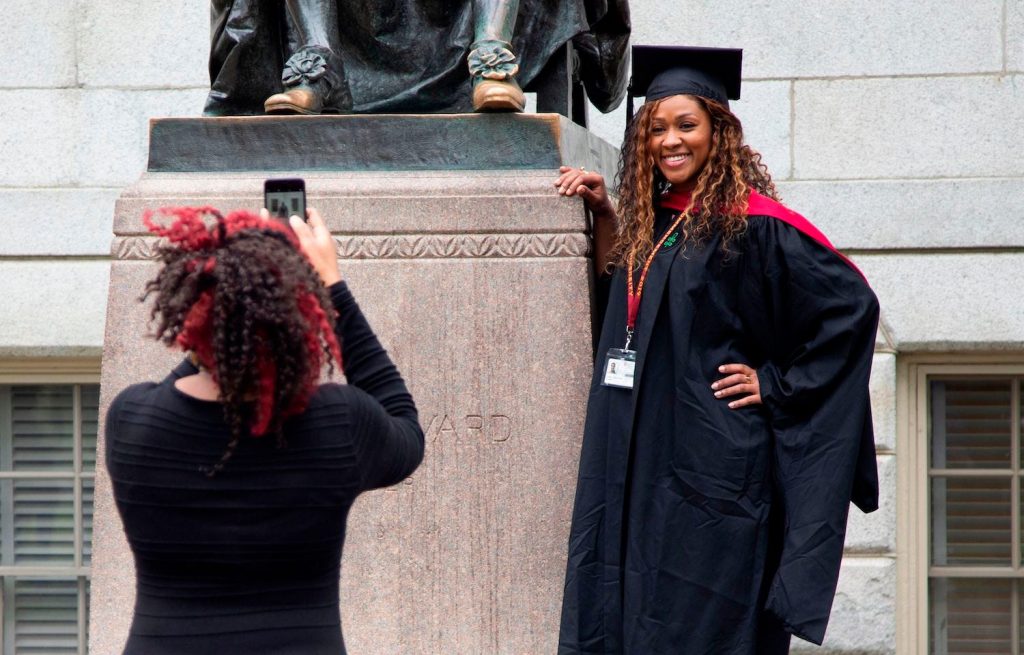- A new UK visa aims to attract graduates from the world's best colleges.
- Alumni can apply for a "High Potential Individual" visa without having a job offer.
- Harvard, Yale, and MIT are among the 20 eligible US colleges. Here's the full list.
Recent graduates from 20 US universities will now be able to apply for a visa to live and work in the UK for up to three years without having a job offer on the table. The visa is part of updates to the UK immigration system aimed at attracting highly skilled workers to the country.
Before moving to the UK, US citizens typically need a UK-based firm to provide a concrete job offer and agree to sponsor their work visa paperwork. Now, under the new High Potential Individual (HPI) visa scheme, they'll be able to apply to move to the country without an offer, and bring their family along — as long as they obtained a degree from a "top" university within the last five years.
Eligible graduates must come from universities named on the UK government's annual list of what it considers to be the best 50 universities globally. In order to qualify for that list, each institution must have appeared on two of three global rankings; The Times Higher Education World University Rankings, Quacquarelli Symonds World University Rankings, and/or The Academy of Ranking World Universities.
Twenty US universities appear on the UK government's list for 2022. The majority of other universities are situated in Europe and Asia.
Graduates with a bachelors or masters degree will be eligible for a two year visa, those holding a PhD can stay for three years. The visa cannot be extended, but a person can apply to a different visa scheme once it expires.
There are other stipulations. Applicants must be proficient in English. They must also show that they can support themselves and have at least £1,270 ($1604) in available funds. The visa costs £715 ($903). Applicants will also have to contribute to the UK's National Health Service, costing up to £1,872 ($2,365).
The visa change is part of the UK's new points-based immigration system
The visa is part of the British government's reordering of its immigration policy towards a "points-based system" since leaving the European Union in January 2021.
Under the system, visa applicants need to amass '70 points' in order to secure skilled worker status. The points are calculated based on factors such as a person's qualifications, type of job they're applying for, languages skills, and the amount they will be paid.
It aims to attract candidates it deems to be highly skilled for tech, startup and finance roles in particular.
This new visa offer means that the UK can continue to attract the best and brightest from across the globe, said chancellor of the exchequer Rishi Sunak. In 2019, the government changed its system to let any foreign national that graduates from a British university stay for two years after graduation — previously they had to leave within four months of completion.
The plans have drawn some criticism. There are no African, South Asian, or Latin American institutions on the UK's list, something Christopher Trisos, director and senior researcher at South Africa's University of Cape Town, told the BBC was an inequitable approach.
Trisos warned that if the UK wants to address problems like the climate crisis, energy access, and future pandemics, it should recognize the specialist skills and knowledge held by graduates in developing countries.
Included on the list are the following 20 US universities, in alphabetical order:
- California Institute of Technology (Caltech)
- Columbia University
- Cornell University
- Duke University
- Harvard University
- Johns Hopkins University
- Massachusetts Institute of Technology (MIT)
- New York University (NYU)
- Northwestern University
- Princeton University
- Stanford University
- University of California Berkeley
- University of California, Los Angeles (UCLA)
- University of California, San Diego
- University of Chicago US
- University of Michigan-Ann Arbor
- University of Pennsylvania
- University of Texas at Austin
- University of Washington
- Yale University
To read the full list, go to the UK Government website.

